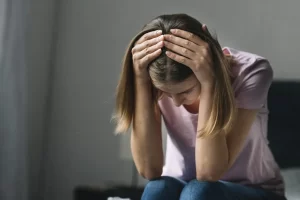
What Is Vulvodynia and How Can It Be Treated?
What Is Vulvodynia?
Vulvodynia is commonly known as a depressed vagina. But depression is a mood disorder, and since vaginas do not have moods of their own, they cannot get depressed.
While sexual dysfunction and pain disorder in the pelvic area can certainly cause depression in women, the closest thing to an actual depressed vagina is vulvodynia. It is even often treated with antidepressants.
Vulvodynia is characterized as a chronic pain or discomfort in the vagina, specifically in areas around the opening. It has no identifiable cause and can last up to three months.
The pain associated with vulvodynia can be so severe that activities such as sitting down and sex can be uncomfortable.
Vulvodynia can come as a result of several factors such as trauma like childbirth or surgery. Other factors include infection like vulval candidiasis, inflammation, irritation, hormone imbalances, anxiety, or neurological dysfunctions.
As early as in their teen years, women may develop vulvodynia, and it may also develop later in life. The number of women estimated to have vulvodynia in the United States range up to 7,000,000.
What Are the Symptoms of Vulvodynia?
The primary symptom of vulvodynia is pain and discomfort in the vulva that lasts for at least three months. It can be characterized as any of the following:
- Stinging
- Rawness
- Burning
- Itching
- Throbbing
- Soreness
- Dyspareunia
These symptoms can be both constant or occasional, and may only occur when the vulva is touched. The pain may cover the whole area of the vulva or only a certain area.
The muscles and tissues in the vulva may also look and feel slightly swollen, but in some cases, it can look normal despite the pain.
What Is Dyspareunia? A recurring and/or persistent genital pain that occurs during sexual intercourse.
How Did Vulvodynia Come to Mean Depressed Vagina?
The idea of a vagina being depressed enough to be prescribed antidepressant medication has stuck and entered the popular lexicon through TV shows in the 90s.
But the truth is, while many women who are depressed may also suffer from vulvodynia, but they aren’t mutually exclusive.
Vulvodynia may lead to someone feeling depressed. It can also be the other way around, that someone may be depressed but don’t suffer from vulvodynia at all.
Just because antidepressants can treat some cases of vulvodynia doesn’t mean a vagina is suffering from depression. The tricyclic nature of some antidepressants simply helps modulate a patient’s nervous system, which can decrease the pain felt in the pelvic area.
How Is Vulvodynia Diagnosed?
Patients are diagnosed on the basis of their medical history and symptoms. A doctor may order culture lab tests to rule out infection.
A doctor may also perform a swab test, where cotton swabs are applied lightly around the vulva. The patient will then be asked to rate the pain level.
A visual examination of the vulva may also be performed. Physical examinations to palpate pelvic floor muscles can also help in the diagnosis.
What Are the Different Vulvodynia Myths and Facts?

Many women who suffer from vulvodynia believe that they will have to deal with their pain and symptoms forever. Some also believe that pain will prevent them from engaging in sexual activities ever again.
The truth is that there are many treatment options for patients suffering from vulvodynia.
What Are the Different Vulvodynia Treatment Options?
Treatment options for vulvodynia can help women live with lesser pain and symptoms and allow them to resume sexual activities without worrying about pain.
Treatments for vulvodynia may involve any of the following:
- Oral Pain Medications (opioids, anticonvulsants, antidepressants, or Serotonin-Norepinephrine inhibitors)
- Topical Creams and Anesthetics (ex.estrogen cream, topical lidocaine)
- Pelvic Floor Therapy
- Surgery
- Nerve blocks
- Neurostimulation
Vulvodynia also isn’t a simple gynecological condition, as there are still no answers to what actually causes it. This could mean visiting a number of specialists, such as gynecologists, neurologists, dermatologists, urogynecologists, physical therapists, and even psychologists.
Treatments for vulvodynia are not meant to address its source but to alleviate symptoms and moderate the pain. As such, there is not one single treatment for vulvodynia, so it may take time to find the right combination of treatment options.
Is Being Sexually Active a Factor?

Being sexually active is a personal decision and does not factor in whether a woman may or may not risk vulvodynia. It can only be a problem if a patient wants to be sexually active but is hindered by the persistent pain of vulvodynia.
Where Can I Get Treated for Vulvodynia?
You can seek an expert for vulvodynia treatment, or talk to your primary care physician to point you in the right direction. Our trained and experienced medical professionals at Las Vegas Aesthetics Med Spa can treat patients in Las Vegas, Nevada, but we welcome clients from around the world. All treatments and procedures are exclusively performed OR supervised by Thomas Pulice, PA-C himself.
If you have any questions or would like to schedule an appointment for vulvodynia evaluation and treatment call Las Vegas Aesthetics at 702.664.1300.
Vulvodynia may not mean your lady parts are getting depressed, but it’s a serious medical concern nonetheless. Patients suffering from vulvodynia can be in so much pain that they can even have a hard time sitting down!
If you’re experiencing any of the symptoms mentioned above, talk to your sexual health doctor as soon as possible.
Call us to make an appointment!
Up Next: How To Use The Best Skin Care Products, Without Spending a Fortune
